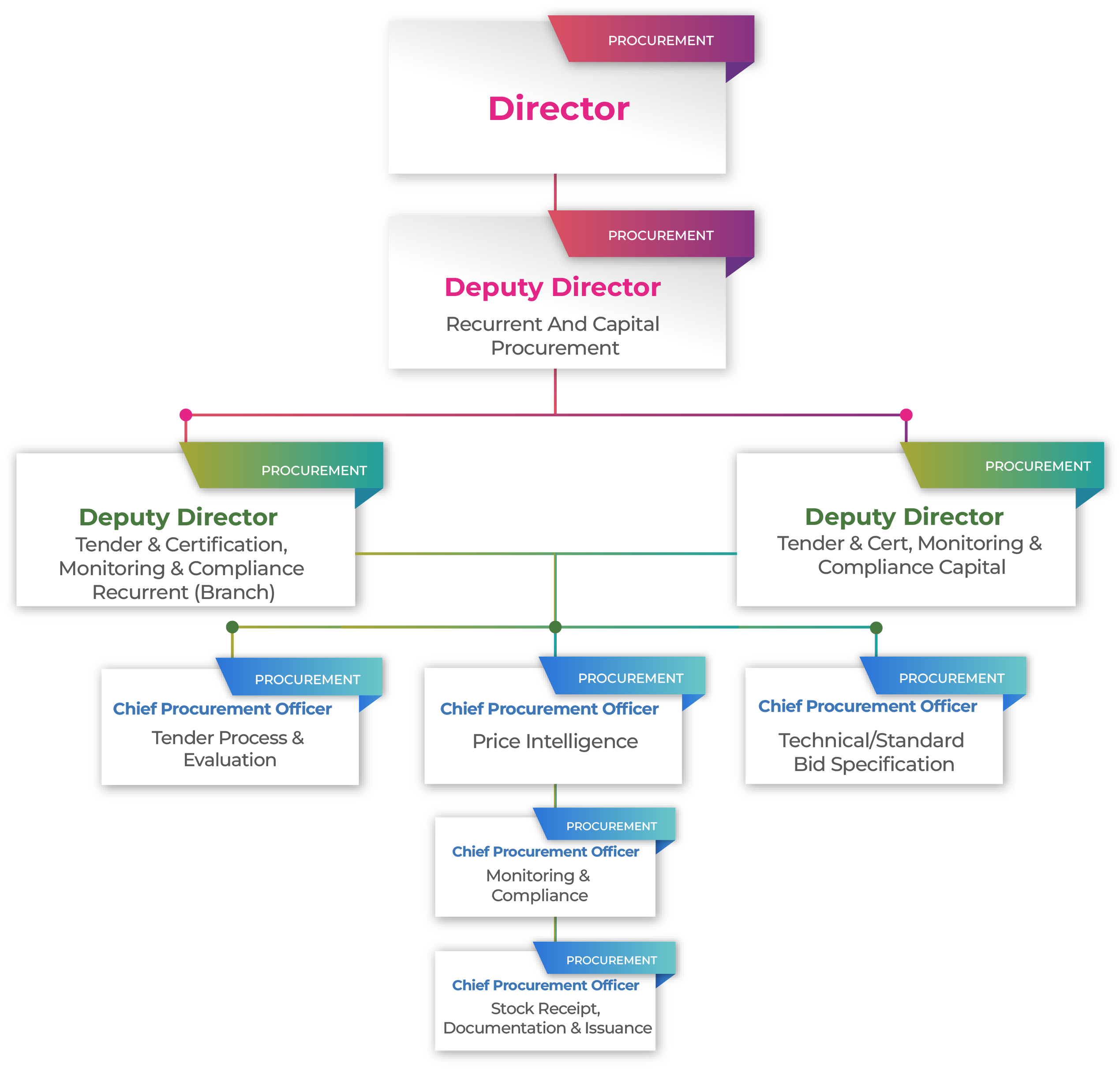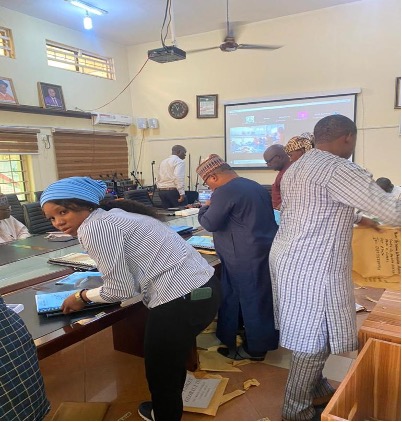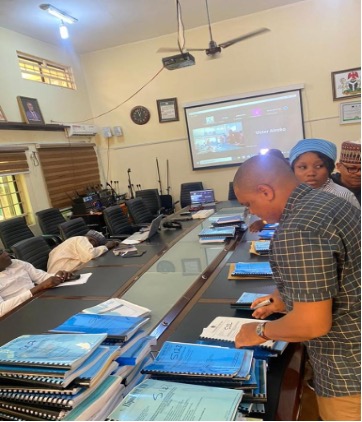Procurement Department
INTRODUCTION/BACKGORUND
Public Procurement is the use of public funds by public entities for the delivery of public goods, works and services through a third party (Contractor).
It encompasses a sequence of related activities starting with assessment of needs through to Contract award to Contract management and then final payment.
At the inception of democratic government in 1999, the Federal Government observed that the contract award system lacked the required competition and transparency in the award process.
Some of the problems identified include:
- Lack of competition and transparency in project procurement leading to high cost of projects and loss of confidence in Government by the public
- Non publication of contract opportunities;
- Non prior disclosure of rules to be used in the selection process;
- Lack of standard bidding documents;
The above gave rise to:
- Bid/Contract splitting.
- Use of fake documentations and falsification of facts.
- Collusion between bidders and between procuring entities.
- Conflict of interest was dominant and unchecked.
- Use of inferior/sub-standard materials in public procurement.
- Kickbacks and bribery.
- Abandoned projects; and
- Decreased value for money
To forestall all of the above, the Public Procurement Act (PPA) 2007 was signed into law.
The Centre being a responsible government agency has set up a Procurement Department to ensure transparency, accountability, and value for money in its procurement process.
The Director-General of the Centre is the person charged with line supervision of the conduct of all procurement processes.
While the Director/HOD leads the execution of procurement policies and day to day administration of the department.

STRATEGIC MANDATE/OBJECTIVE
- To optimally adopt and utilize government rules and regulations on public procurement to ensure probity, accountability, and transparency in the procurement process.
- To ensure realistic costing of projects
- Adopt and apply the principles of fairness, competitiveness, transparency, value for money in the procurement and disposal of public assets and services.
- The attainment of transparency, competitiveness, cost effectiveness and professionalism in the procurement process.
- Effective monitoring and evaluation process that will ensure that project concepts are effectively implemented.
DEPARTMETAL DIVISIONS/UNITS FUNCTIONS
- Tender Process and Evaluation Unit: - Issues out tender documents and evaluate same.
- Technical/Standard Bid Specification unit: - Develops Standard Bid Documents in accordance with goods to be procured.
- Certification Unit: - To ensure that all statutory documents are submitted by contractors and such documents subjected to verification.
- Price Intelligence Unit: - Conducts markets survey and prepares the market survey statistical table.
- Monitoring and compliance: - Monitor projects to ensure that projects conceptualized are implemented in accordance with the bill of quantity and ensure compliance with the procurement Act and other Bureau of Public Procurement rules and regulations.
PROGRAMMES CONDUCTED SINCE 2016 TO DATE
Successful execution of procurement activities and processes from 2016 till date
IMPACT MADE BY DEPARTMENT
- Evolved a transparent Procurement process.
- Able to execute empowerment projects that touch lives and improve the standard of living of the people.
- Achieved value for government money and fitness for purpose.
PHOTOSPEAK ON DEPARTMENTAL ACTIVITIES


